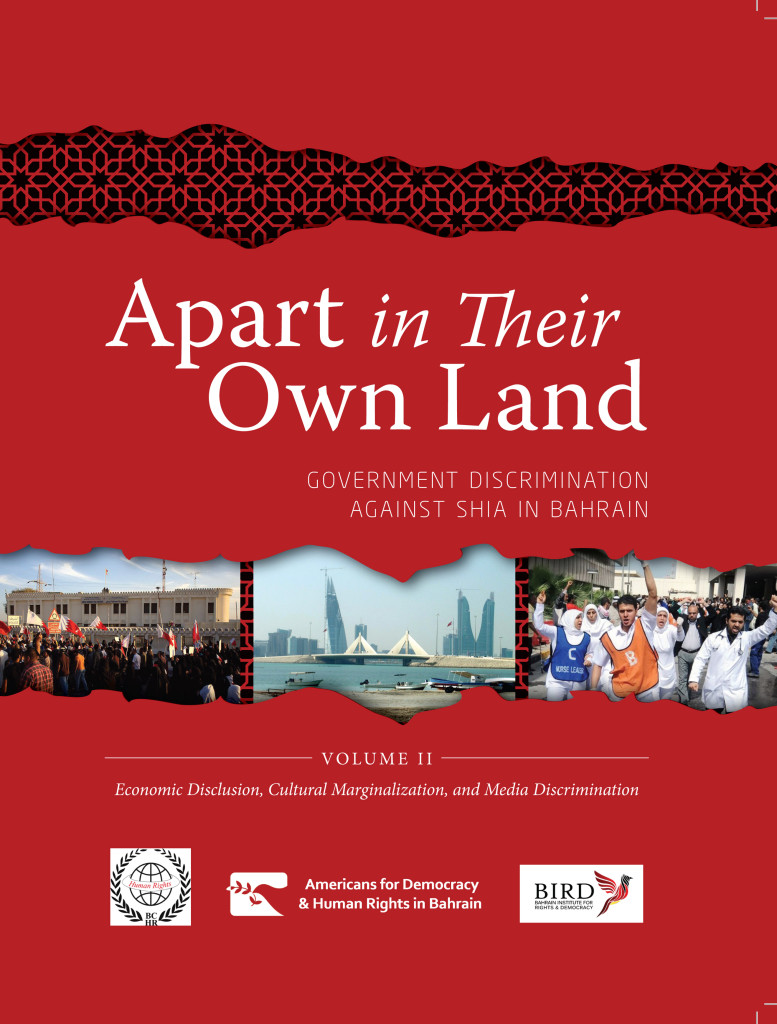15 September 2015 — Americans for Democracy & Human Rights in Bahrain (ADHRB), the Bahrain Institute for Rights and Democracy (BIRD), and the Bahrain Center for Human Rights (BCHR) are pleased to announce the publishing of a new report entitled Apart in Their Own Land, Vol. II—a report on official and unofficial forms of discrimination against Bahrain’s disempowered Shia population.
Click here to download the report.
This report arrives seven months after the publication of Volume I of Apart in Their Own Land, which covered violent reprisals against the majority-Shia protest movement in 2011, electoral districting that tilted the country’s parliamentary elections toward the nation’s Sunni elite, and the destruction of Shia mosques by government authorities. Vol. II arrives during a period in which discrimination against the Shia majority and its allies within the Sunni community has only worsened. In the last year, the government has further committed itself to dismantling the political opposition, sentencing al-Wefaq Secretary-General Ali Salman to four years in prison; al-Wahdawi leader Fadhel Abbas to five years in prison, and re-arresting Waad Secretary-General Ebrahim Sharif mere weeks after an early release from a lengthier prison term.
The renewed suppression of a cross-sectarian opposition has one purpose: to oppress a Shia population that would, if it truly shared power, help likeminded Sunnis channel resources from a small governing elite to a struggling majority. This majority currently struggles because of the forms of oppression outlined in Vol. II: widespread media demonization, near-total erasure of cultural and religious heritage sites, and disproportionate exclusion from the nation’s considerable economic wealth. These inequalities stem, unsurprisingly, from the lack of representation previously detailed. In Bahrain as elsewhere, absolute governance is hardly generous, and those outside the ruling clique due to longstanding religious and cultural identity can expect neither equality nor charity.
Click here to download the report.





